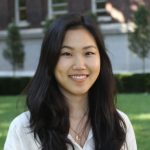- The Taiwanese American community is reacting with shock and fear after a shooting in Laguna Woods.
- A tangled history of strained Taiwan-China relations underpins the attack.
- Taiwanese Americans say understanding specifics and focusing on healing are key.
For Leona Chen, a second-generation Taiwanese American, church was more than just a religious space. It was a social one.
"More than the sermons, Taiwanese people across all generations remember the potlucks, the ping pong, getting help with calculus homework," Chen, the editor-in-chief of TaiwaneseAmerican.org, said. "The space is sacred, not in a theological way necessarily, but a tender and joyful part of the Taiwanese American community."
So when Chen heard about the shooting at a church in Laguna Woods, California, where a man killed one person and injured several more, she was shocked that a place of healing and community had been targeted so violently.
The fear, shock, and grief is echoed across the Taiwanese American community.
"It could happen to any of us. An attack on them is an attack on our entire community," said Tiffany Yang, a member of the nonprofit Taiwanese American Professionals (TAP), who lives near Laguna Woods.
The incident belies a more complex history that Taiwanese Americans say is crucial to understanding the shooting's true implications—and the narrative surrounding it.
A tangled history of Taiwan-China relations.
Taiwan and China have a long history of conflict. In 1949, after losing control of most of mainland China during the Chinese Civil War, the Kuomintang withdrew to Taiwan and established martial law.
Ever since, China has doubled down on its "One China" principle, which holds that Taiwan is part of its sovereign state. This has led to a sense of "nationalistic fervor," as reflected in China's response to the protests in Hong Kong and its boycotting of Tibetan and Uyghur voices and businesses, according to Jessica Drun, a Taiwanese American fellow at Atlantic Council who specializes in cross-Strait relations.
The tangled history has fed into discussions surrounding the Laguna Woods shooting, and identity politics more broadly.
On Monday, the Orange County sheriff said in a press conference that the suspect was a Chinese immigrant with US citizenship, and was "upset with political tensions between Taiwan and China."
But Taiwanese news outlets have since reported that the suspect is a second-generation "waishengren"—an ethnically Chinese person who was born in Taiwan. The Taipei Economic and Cultural Office in Los Angeles later confirmed the fact.
Taiwanese Americans warn against painting an anti-China narrative.
The nuances around the shooter's identity are tied to Taiwanese Americans' deeper memories of political suppression by Chinese immigrants in Taiwan.
But members of the Taiwanese American community are wary of framing the Laguna Woods shooting as a simple anti-China story, and emphasize that the incident was an act of one individual—not of an entire country or group of people.
"We all need to challenge ourselves to think about the complexity. The shooter is from Taiwan but may not have identified as Taiwanese as the victims would have," Chen said. "Specificity affords dignity to the situation, and specificity has always been the means by which Taiwanese people have gained agency."
Instead, many Taiwanese American organizations are focusing their efforts on sharing information and resources, including a GoFundMe for the church and crisis counseling support.
"Our focus is on how we can bring the community back together and build resilience," Yang said. "Hate is not the answer here."

